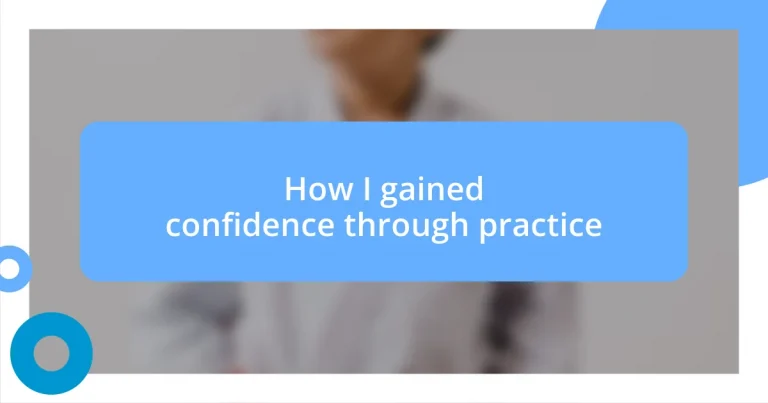Key takeaways:
- Confidence is built through practice and experience; each small achievement increases self-assurance.
- Identifying and confronting personal confidence barriers, such as fear of judgment and past criticism, is essential for growth.
- Sharing experiences with others fosters a supportive community that reinforces confidence through mutual encouragement.
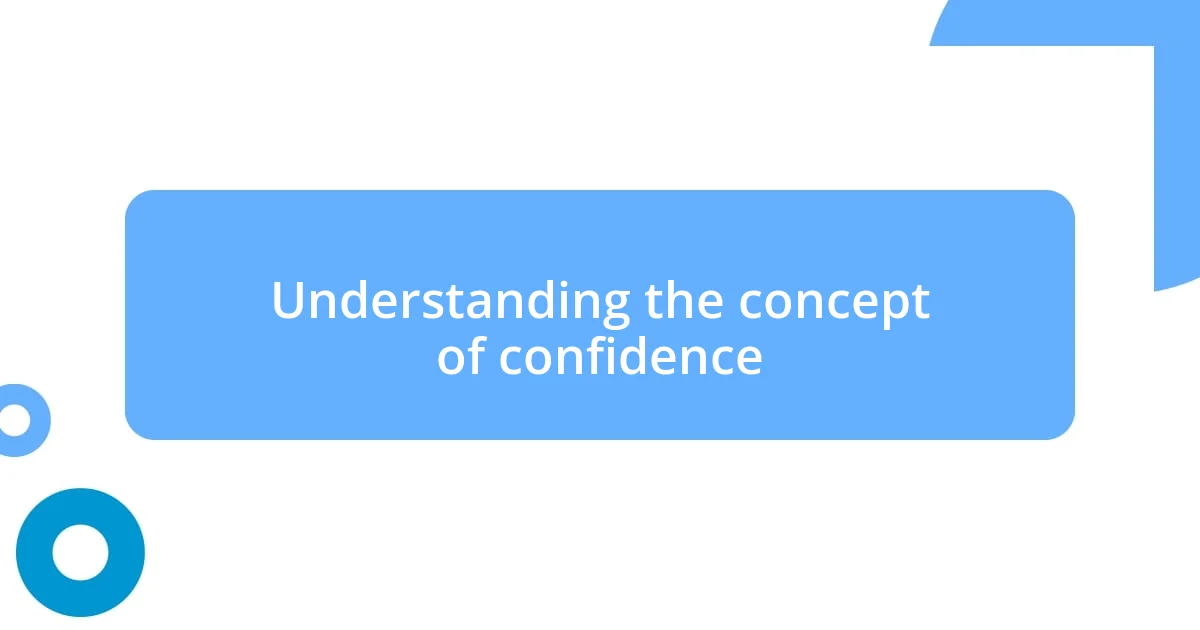
Understanding the concept of confidence
Confidence, at its core, is that inner belief in our abilities. I remember the first time I stood in front of a crowd to give a speech; the tremors in my hands made me question if I could make it through. Have you ever felt that sinking doubt? It’s a common experience that often makes us underestimate our potential.
As I delved deeper into understanding confidence, I realized it’s not just about feeling good; it’s an ongoing journey of self-discovery. Each time I practiced my speech, I felt a flicker of reassurance that grew stronger with every repetition. Isn’t it fascinating how practice can turn that flicker into a blazing fire of self-assurance?
Confidence isn’t just about being fearless; it thrives on experience and preparation. When I faced my fears head-on, it was like I was gradually building a sturdy bridge over a chasm of insecurity. What if I told you that every step on that bridge—each small achievement—added to a sense of certainty that could carry you through challenging moments?
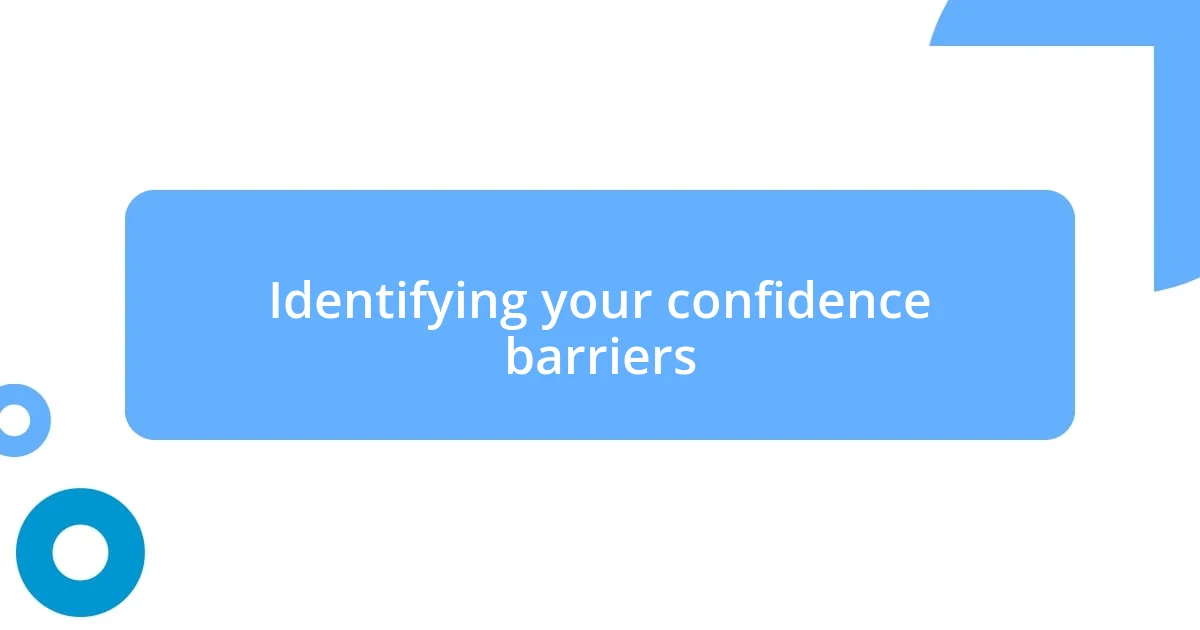
Identifying your confidence barriers
Identifying confidence barriers is crucial for personal growth. I can recall a moment of vulnerability during a group project. I hesitated to share my ideas because I worried they wouldn’t be valued. This fear of judgment held me back, but recognizing it was the first step to overcoming it.
Often, our barriers are deeply rooted in past experiences. For instance, I once took a dance class, but my confidence plummeted after a critical comment from an instructor. It took considerable reflection to understand that my fear of making mistakes stemmed from that single moment. By pinpointing specific incidents, we can begin to dismantle the mental blocks we’ve created.
To effectively tackle these barriers, we must ask ourselves probing questions. What situations trigger self-doubt? I’ve found journaling about my feelings immensely helpful. It uncovers patterns in my thoughts and behaviors, allowing me to confront them directly. The more aware we become of these obstacles, the easier it is to approach them with strategies that empower us.
| Barrier Type | Example |
|---|---|
| Fear of Judgment | Hesitating to speak in meetings |
| Past Criticism | Not pursuing a new hobby due to earlier negative feedback |
| Perfectionism | Procrastinating on tasks because of fear of making mistakes |
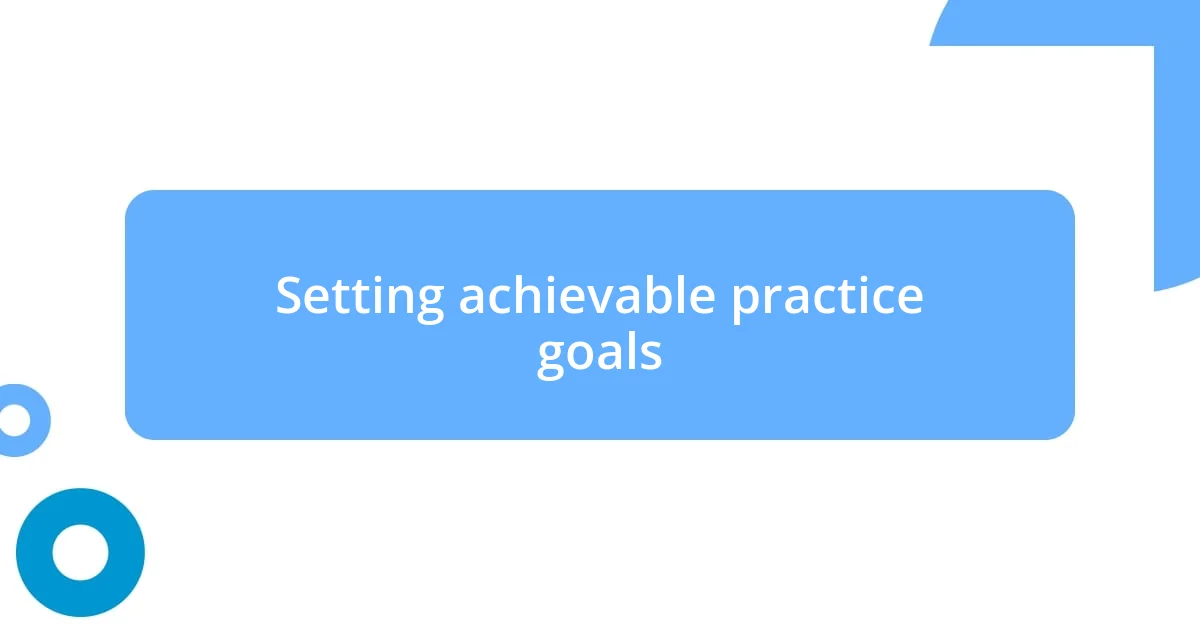
Setting achievable practice goals
Setting achievable practice goals can significantly enhance your confidence-building journey. When I first started setting goals for my public speaking, I was a bit too ambitious. I wanted to deliver a flawless 30-minute lecture right off the bat. It didn’t take long for me to realize that breaking it down into smaller objectives made all the difference.
Here are some key strategies to consider when setting practice goals:
- Be Specific: Instead of saying “I’ll practice more,” set a goal like “I will practice my introduction five times today.”
- Make it Measurable: Track your progress, for example, “I’ll record myself and assess my pacing once a week.”
- Set Realistic Targets: Aim for goals that challenge you but are achievable, like “I’ll speak in front of a small group before a larger audience.”
- Time-bound Goals: Use a timeline, such as “By the end of this month, I will have completed three practice sessions with my friends.”
With each small achievement, you build momentum and confidence. I still remember the boost in my self-esteem after nailing a five-minute speech that I had practiced vigorously. Suddenly, those larger audiences didn’t seem so daunting anymore. It’s about taking those incremental steps that lead to transformative change.
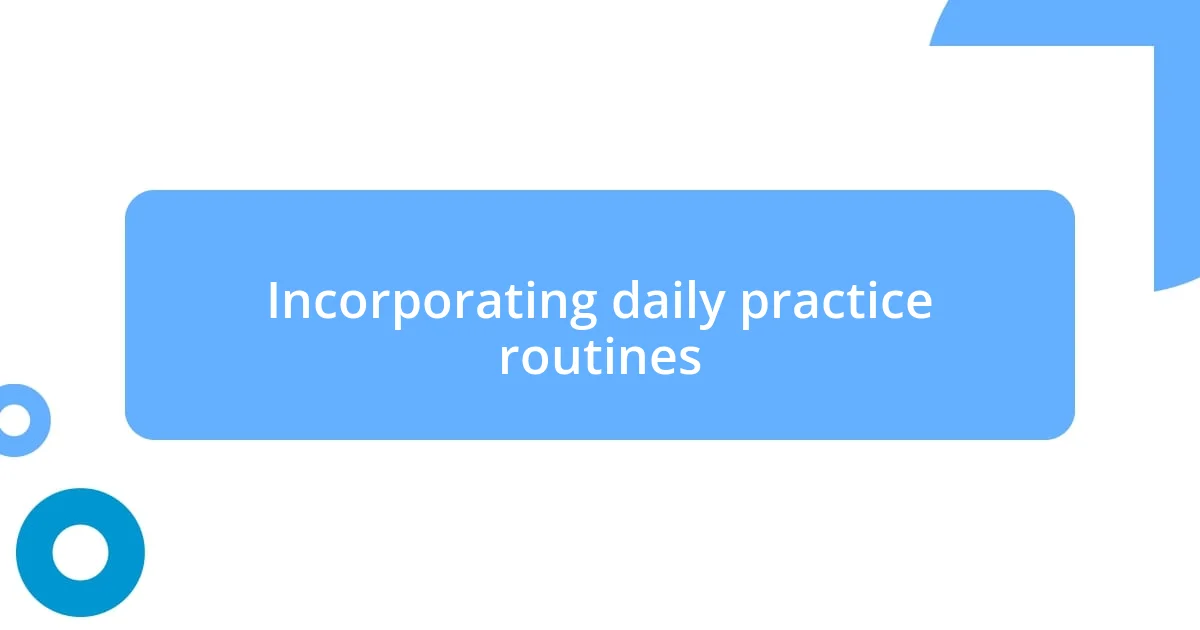
Incorporating daily practice routines
Incorporating daily practice routines was a game changer for me. I remember setting aside just ten minutes every morning to focus on my speaking skills before heading to work. Initially, it felt tedious, but slowly, those small time slots transformed into a warm-up ritual that I genuinely looked forward to. It’s funny how a mere commitment to daily practice can morph a daunting task into a source of excitement.
What really struck me was how these brief, consistent sessions accumulated over time. Have you ever experienced that moment when everything just clicks? I did during one of my practice sessions when I finally delivered a flawless presentation without feeling nervous. The key was that it didn’t happen overnight; it was the cumulative effect of daily commitment that had equipped me with the tools to succeed.
I also found it helpful to mix up my practice routines, keeping things fresh and engaging. For instance, one day, I’d practice in front of a mirror, and the next, I’d record my voice while pacing around my living room. This variety not only maintained my interest but also helped me overcome my fear of performing in different environments. So, have you tried diversifying your practice? It could be just the spark you need to elevate your confidence!
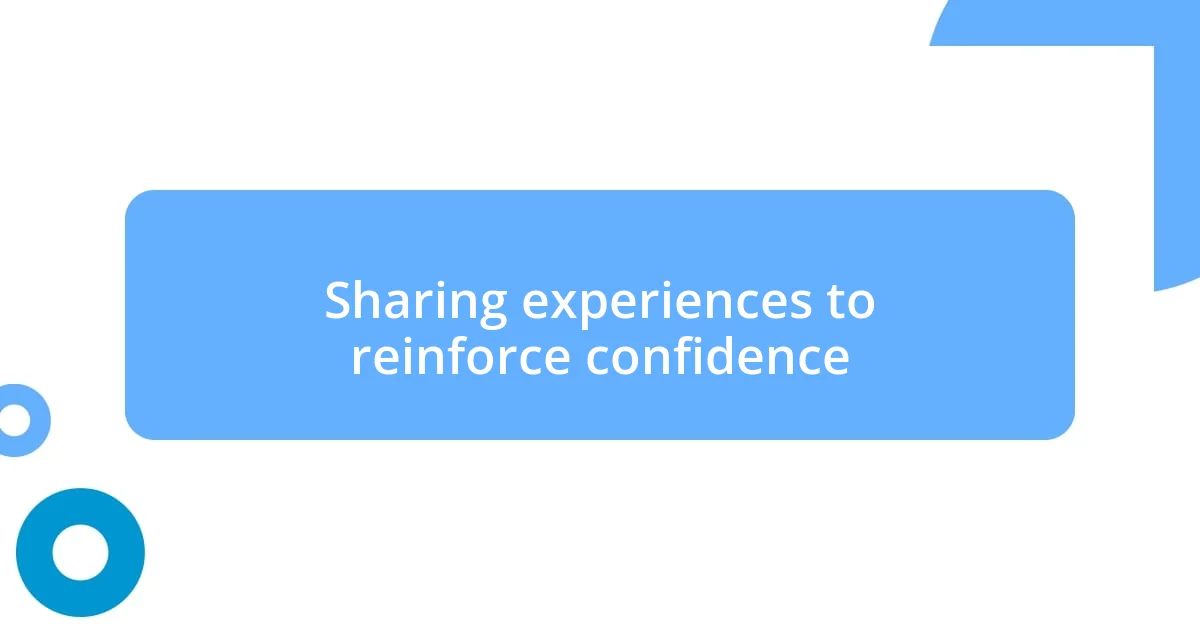
Sharing experiences to reinforce confidence
Sharing experiences with others has a profound impact on reinforcing confidence. I distinctly remember the day I joined a local speaking group where everyone shared their own hurdles. Listening to their stories was like peeling back layers of insecurity—they were all grappling with doubts similar to mine. This connection reminded me that I wasn’t alone, and just like that, a sense of camaraderie began to form, boosting my confidence with each shared vulnerability.
There was one particular session where a fellow member shared how they overcame their fear of stage fright by embracing it as part of their performance. I could relate deeply, having once stood frozen behind a podium. Hearing their journey sparked my desire to share mine. When I finally opened up about my own struggles, I felt an incredible release. In that moment, I discovered that sharing isn’t just about offering support; it’s about building a community that lifts one another up. Isn’t it fascinating how our stories can intertwine and create mutual encouragement?
Often, I reflect on how collective experiences shape our confidence. I found that participating in discussions about our failures and celebrating our successes fostered an environment where we lifted each other’s spirits. It’s a bit like witnessing a chain reaction; one person’s success can ignite another’s determination. Have you ever felt that rush of inspiration when someone shares their breakthrough? I certainly have, and it’s moments like these that make me realize the transformative power of sharing our journeys with others.












